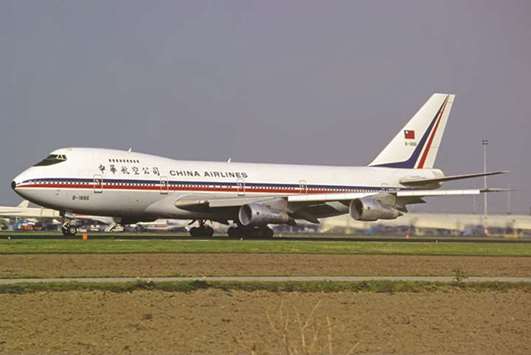Taiwanese carrier China Airlines Ltd expects to place an order for more than 20 Airbus SE or Boeing Co narrow body aircraft by the end of the year, the airline’s president said yesterday.
The aircraft being evaluated to replace 20 Boeing 737-800s include the Airbus A320neo and A321neo and the Boeing 737 MAX 8, 9 and 10 models and the first deliveries should occur in 2021 or 2022, China Airlines president Hsieh Su-Chien said.
“(We will order) more than 20 unless we see the market is going to die,” he told Reuters on the sidelines of an industry conference. “I think we will expand.”
Hsieh said the airline was in talks with the aircraft and engine manufacturers and hoped to reach a decision by the end of the year.
China Airlines, the country’s second-biggest by revenue behind EVA Airways Corp, reported rising passenger numbers in the nine months ended September 30 and is looking to expand flights to south-east Asia.
The carrier receives around 28% of its revenue from cargo, the highest level in the Asia-Pacific region, although Cathay Pacific Airways Ltd and Korean Air Lines Co have more sizeable freight businesses in volume terms.
Global air cargo volumes surged 10.4% in the first half – their strongest half-year performance in seven years and nearly triple the industry’s average growth rate of 3.9% in past five years, data from the International Air Transport Association shows.
Taiwan’s export order value hit its highest on record in September.
Taiwan’s export orders are a leading indicator of demand for Asia’s exports and for hi-tech gadgets such as Apple’s new iPhone 8 as well as the iPhone X, which is expected to be shipped from November 3.
China Airlines senior vice president Steve Chang said the airline had easily raised the rates it charged for transporting semiconductors since they can only be moved using dedicated freight aircraft.
The Taiwanese airline has 18 747 freighters.
In the nine months ended September 30, China Airlines reported an average cargo yield 11.5% higher than the same period the prior year as well as an 8% rise in freight volumes.
Chang said forward bookings were strong, meaning the improved conditions in the freight market were likely to continue until at least the first quarter of 2018.

China Airlines, Taiwan’s second-biggest by revenue behind EVA Airways, reported rising passenger numbers in the nine months ended September 30 and is looking to expand flights to south-east Asia.


